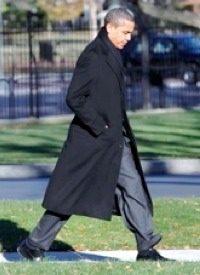
Promises were made that the summit would consider concerns about the federal deficits and national debt, proposed tax reform, and “a balanced approach to regulation that will promote, rather than undermine, economic growth.” The summit was held while Congress was considering extending the Bush tax cuts, and the free-trade agreement with South Korea was in its final stages of negotiation.
The “charm offensive” was launched by the President with these opening words:
Those of you around the table represent why America is unique, what is best about our entrepreneurial spirit, and I want to dispel any notion that we want to inhibit your success. We want to be [your] boosters because when you do well, America does well.
This was a far cry from that being reflected back to the President just a few months ago by some of his most ardent supporters. Writing in U. S. News and World Report, real-estate billionaire Mort Zuckerman bluntly stated:
He has lost the confidence of much of the business community, whose worries over taxes, the dramatically increased costs of new regulation, and a general perception that the administration is hostile to them and may take yet harsher steps, are holding back investment and growth…. It is critical that the government in Washington appreciate that confidence is an imperative if the business community is to invest, take risks with start-ups, and altogether get the economy going again.
Many of those at the summit consider themselves corporate socialists rather than entrepreneurs, as pointed out acidly by Daniel Gross at Slate:
There is a difference between businesses jostling to minimize the damage of a reform they can’t stop [as compared to] those businesses crafting legislation they desperately want to enact.
Representatives of those companies involved in creating such legislation were in high profile at the summit, including Kenneth Chenault of American Express, Jeff Immelt of Honeywell (and formerly of General Electric), Ellen Kullman of DuPont, John Lechleiter of Eli Lilly, Andrew Liveris of Dow Chemical, and James McNerney of Boeing — all companies with heavy leverage and resulting benefits flowing from that leverage with the Obama administration. Each has enjoyed many years of success in guiding policies of the government to their own benefit, including especially recent healthcare legislation, defense contracts, and financial regulation legislation.
Following the meeting, President Obama said, “We focused on jobs and investments. They feel optimistic that by working together, we can get some of [their nearly $2 trillion of] cash off the sidelines.”
The parade of applauders exiting the meeting were generous in their approbation. Lew Hay, CEO of NextEra Energy (a “green” company that is no doubt enjoying federal support for “green” industry), exclaimed: “The president clearly wants to get the economy moving, and he’s willing to listen to a broad range of views. He recognizes that jobs are created by the businesses of America and that we need to ensure that businesses have the right incentives in place to invest in the economy and create jobs.” Scott Davis, CEO of UPS, said that his company has added 50,000 employees for the holiday season, and that “we’re doing our part to help out.” Not to be outdone, General Electric announced that it would soon be investing $50 million in a joint venture to build high-speed rail systems that might create 250 jobs.
Several conclusions may safely be drawn from this charade passing for substance:
First, there was no representative of small business in attendance. Said Stephanie Cathcart of the National Federation of Independent Business, “If you really want to talk about creating jobs, then you should be meeting with small business.”
Second, little is expected to come out of the summit except toothy smiles and headlines. Each CEO is ultimately held responsible by his board of directors, and isn’t in a position to make any changes in hiring or investment direction that cannot be ultimately justified by the markets.
Third, it is hard to get excited about the “new cooperation between enemies” when these so-called enemies have been feeding at the federal trough, elbow to elbow, for decades. It’s business as usual.
Fourth, it is no doubt part of each CEO’s job description to make the usual appearances at such summits and conflabs, and put up with the economic nonsense issued by the current, temporary resident of the White House.
Fifth, such summits are distractions from real issues, such as serious discussions about crony-capitalism, deficit reduction, true market deregulation, withdrawing government sanctions from the marketplace, and, heaven forbid, allowing the conversation to even include applying limitations of the Constitution.
It is hard to see any particular positive benefit from such a show of applauders applauding the applauders, when so much needs to be done to start rebuilding the economy and putting limits back onto government and getting the government off the back of the real economy.
Photo of President Obama walking back to the White House after meeting with CEOs at the Blair House: AP Images



